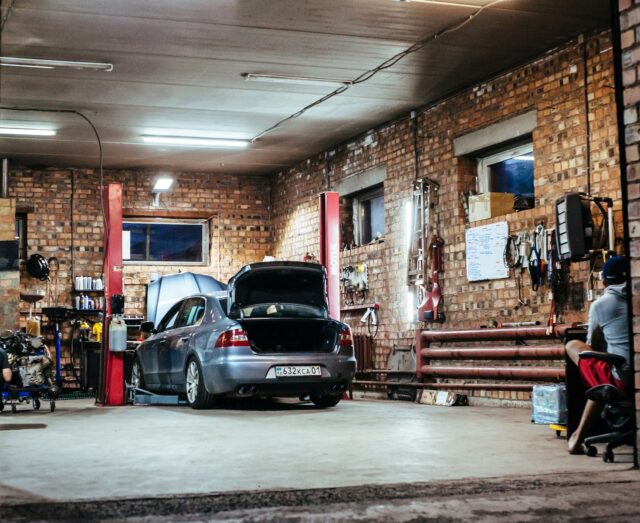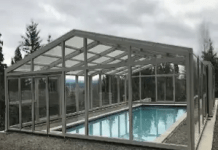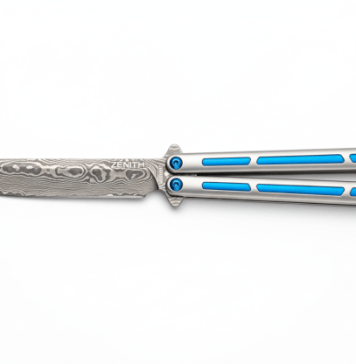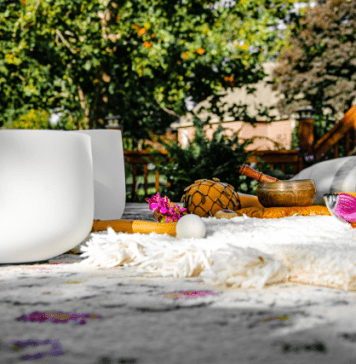
When it comes to enhancing and protecting your garage floor, choosing the right coating can make all the difference. A well-coated garage floor is not only visually appealing but also durable and resistant to wear and tear. There are several garage floor coating options available, each with its own set of benefits and considerations. In this blog, we will explore the best garage floor coating options to help you make an informed decision.
Epoxy Coatings
Epoxy coatings are one of the most popular and widely used garage floor coating options. They are known for their durability, resistance to stains, and glossy finish. Epoxy coatings are a mixture of resin and hardener that, when combined, form a tough, protective layer over your garage floor.
Advantages of Epoxy Coatings:
- Durability: Epoxy coatings are highly resistant to chemicals, oil, and gasoline, making them ideal for garage floors.
- Aesthetic Appeal: They provide a glossy finish that enhances the appearance of your garage.
- Easy Maintenance: Epoxy-coated floors are easy to clean and maintain.
- Versatility: Available in a variety of colors and styles, including metallic and flake finishes.
Considerations:
- Preparation: Proper surface preparation is essential for the epoxy to adhere well.
- Installation: Professional installation is recommended for the best results, as improper application can lead to peeling or bubbling.
- Curing Time: Epoxy coatings require a curing time of several days before the garage can be used.
Polyurea Coatings
Polyurea coatings are gaining popularity due to their quick curing time and impressive durability. This type of coating is known for its flexibility, which makes it highly resistant to impact and abrasion.
Advantages of Polyurea Coatings:
- Fast Curing: Polyurea coatings cure quickly, often within 24 hours, allowing for minimal downtime.
- Durability: They offer excellent resistance to chemicals, UV rays, and extreme temperatures.
- Flexibility: The flexibility of polyurea makes it less prone to cracking and chipping.
- Low Maintenance: Easy to clean and maintain, similar to epoxy coatings.
Considerations:
- Cost: Polyurea coatings can be more expensive than other options.
- Professional Installation: Due to the quick curing time and precise application process, professional installation is recommended.
Polyaspartic Coatings
Polyaspartic coatings are a type of polyurea coating that offers similar benefits but with added advantages. They are known for their fast curing time and superior UV stability.
Advantages of Polyaspartic Coatings:
- Rapid Curing: Cures even faster than polyurea, sometimes in just a few hours.
- UV Stability: Unlike some other coatings, polyaspartic coatings do not yellow or fade when exposed to sunlight.
- Durability: Excellent resistance to chemicals, abrasion, and impact.
- Customization: Available in various colors and finishes, including high-gloss and matte options.
Considerations:
- Cost: Similar to polyurea, polyaspartic coatings can be expensive.
- Surface Preparation: Proper surface preparation is crucial for adhesion.
- Professional Application: Professional installation is recommended for optimal results.
Acrylic Coatings
Acrylic coatings are a budget-friendly option for those looking to enhance the appearance of their garage floor without breaking the bank. While not as durable as epoxy or polyurea, acrylic coatings still offer some protection and aesthetic benefits.
Advantages of Acrylic Coatings:
- Affordability: Generally more affordable than other coating options.
- Aesthetic Appeal: Available in a range of colors and finishes, providing a clean look to your garage floor.
- Ease of Application: Can be applied as a DIY project with minimal tools and experience.
Considerations:
- Durability: Less durable than epoxy, polyurea, or polyaspartic coatings and may require more frequent reapplication.
- Chemical Resistance: Not as resistant to chemicals and stains.
- Maintenance: May require more frequent maintenance and cleaning.
Concrete Stain
Concrete stains are another option for those looking to enhance the look of their garage floor. Unlike coatings that sit on top of the surface, stains penetrate the concrete, providing a more natural, variegated look.
Advantages of Concrete Stains:
- Aesthetic Appeal: Offers a unique, translucent finish that highlights the natural variations in the concrete.
- Customization: Available in a variety of colors, allowing for a customized look.
- Durability: Penetrates the concrete, making it less prone to peeling or chipping.
Considerations:
- Protection: Provides minimal protection against stains and chemicals.
- Surface Preparation: Requires thorough cleaning and preparation of the concrete surface.
- Sealing: A topcoat sealer is recommended to enhance durability and protect against stains.
Rubber Tiles
Rubber tiles are an alternative to traditional liquid coatings. They are durable, easy to install, and provide excellent cushioning, making them ideal for garages used as workshops or home gyms.
Advantages of Rubber Tiles:
- Ease of Installation: Can be installed as a DIY project without special tools.
- Cushioning: Provides a comfortable, cushioned surface that is easy on the feet and reduces fatigue.
- Durability: Resistant to stains, chemicals, and impact.
Considerations:
- Cost: Can be more expensive than some liquid coatings.
- Aesthetic Appeal: May not provide the same sleek, glossy finish as other coatings.
- Maintenance: Individual tiles can be replaced if damaged, but regular cleaning is necessary to maintain appearance.
Interlocking Tiles
Interlocking tiles are similar to rubber tiles but come in various materials, including PVC, polypropylene, and others. They offer a modular solution for garage floors and are easy to install and replace.
Advantages of Interlocking Tiles:
- Versatility: Available in a range of materials, colors, and patterns.
- Ease of Installation: Simple, snap-together installation that can be done as a DIY project.
- Maintenance: Individual tiles can be easily replaced if damaged.
Considerations:
- Cost: Depending on the material, interlocking tiles can be more expensive.
- Durability: Varies by material, with some options being more resistant to chemicals and impact than others.
- Aesthetic Appeal: Provides a more textured look compared to smooth coatings.
Urethane Coatings
Urethane coatings are another durable option for garage floors. They are known for their abrasion resistance and ability to withstand heavy traffic.
Advantages of Urethane Coatings:
- Durability: Highly resistant to abrasion, making them suitable for high-traffic areas.
- Chemical Resistance: Good resistance to chemicals and stains.
- UV Stability: Does not yellow or degrade with UV exposure.
Considerations:
- Cost: Can be more expensive than other coatings.
- Application: Requires proper surface preparation and professional installation for best results.
- Curing Time: Requires a longer curing time compared to some other options.
Conclusion
Choosing the right garage floor coating is essential for enhancing the look and functionality of your garage. Each of the garage floor coating options discussed has its own set of advantages and considerations. Epoxy coatings are popular for their durability and aesthetic appeal, while polyurea and polyaspartic coatings offer rapid curing times and exceptional resistance to chemicals and UV rays. Acrylic coatings and concrete stains provide budget-friendly alternatives with varying levels of protection and aesthetic benefits. Rubber tiles and interlocking tiles offer modular solutions that are easy to install and maintain, while urethane coatings provide excellent abrasion resistance for high-traffic areas.
Ultimately, the best garage floor coating option for you will depend on your specific needs, budget, and preferences. Consider the level of durability, resistance to chemicals, and ease of maintenance that you require, and choose a coating that aligns with your goals. With the right coating, your garage floor can be transformed into a durable, attractive, and functional space.













